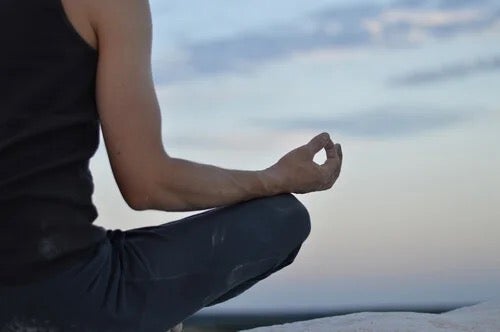Mindfulness is like a lamp that lights the dark and winding corridors of your mind. This technique of relaxation and introspection got its name because being mindful is exactly what it entails. In other words, you simply engage with what’s happening right now, both internally and externally, from an observer’s perspective. This article will give you more information about the art of mindfulness.
Mindfulness helps you to know, control, heal, and transform your mind. This practice also helps you take care of your mind, examine it, keep it in order, and manage it. In fact, it really lets you get to know your mind. Furthermore, you can discover the intricacies of its complicated web of self-deception, neurotic reactions, subterfuge, and frustrations.
The opposite of mindfulness is when you act on autopilot. In other words, when you react and let yourself get carried away by common thought patterns and behaviors. However, mindfulness allows you to turn off this automated pattern and be more aware of your actions and what causes them. In other words, your thoughts.
The origins of mindfulness
Mindfulness is based on the concept of Buddhist meditation. This technique is considered to be of great importance on the path to Enlightenment. In fact, Buddha himself encouraged his followers to practice mindfulness in their everyday life. Its goal is to keep both the mind and body calm.
The concept of mindfulness became known in Western society in 1970 thanks to Jon Kabat-Zinn. Kabat-Zinn was a student of the Zen teacher Seung Sahn. Kabat-Zinn’s practice of yoga and his studies with Buddhist teachers led him to integrate their teachings with those of science. He then went on to create Mindfulness-Based Stress Reduction (MBSR) at the University of Massachusetts Medical School.
Learning the art of mindfulness
Training and developing mindfulness offers you the possibility to connect with the present. Furthermore, you learn to think of your mind as being an unjudgemental space. You disengage with the past, stop functioning on autopilot, and disregard any thoughts about the future.
In fact, you learn to connect with what’s happening right now. You focus your mind and senses on the here and now, moment by moment.
In one of his sermons, Buddha said “Come and look”. Indeed, that’s just what mindfulness is. Looking at what’s here and now, free from any judgment and prejudices, free from any old ways and patterns. In fact, the key to mindfulness is living in the present. Furthermore, it’s adopting the technique as an ongoing way of life.
“Mindfulness is about being fully awake in our lives. It is about perceiving the exquisite vividness of each moment. We also gain immediate access to our own powerful inner resources for insight, transformation, and healing.”
-Jon Kabat-Zinn-
The benefits of practicing mindfulness
There are many benefits to practicing regular mindfulness. These benefits can be physical, spiritual, and emotional. Some of them are the following:
- You find it easier to focus and concentrate.
- You increase your creativity and see solutions to crucial challenges.
- It helps reduce your stress and anxiety. You can set healthy limits and concentrate on your health.
- It reduces intrusive thoughts and excess worry and overthinking.
- If you suffer from chronic pain or depression, it decreases your physical and physiological discomfort.
- It makes it easier for you to identify and regulate your emotions, as well as your emotional responses.
- You develop emotional intelligence.
- It improves the way you communicate. Furthermore, it helps you prevent conflict and to resolve it if it does occur.
- It helps you to live more calmly. It also helps you to enjoy the good times more fully.
- Your empathy and kindness increase. This means it’s easier for you to look after both your own family and others.
- Your decision-making ability improves.
- It increases your curiosity and dedication.
- It increases your antibodies to fight disease.
- Your quality of sleep improves.
- It decreases your negative feelings, such as tension and anger.

The art of mindfulness and the brain
One strange fact is that by exercising mindfulness and meditation you can actually change the shape and size of your brain. It also increases your concentration, flexibility, and intelligence. Furthermore, it builds new neural pathways and networks in your brain.
However, while some areas of the brain increase in size, and become more active, others calm down. One of these is the amygdala. The main area that increases in size is the prefrontal cortex. This is the area of the brain responsible for executive functioning. It’s also where analytical thinking originates.
“The most precious gift we can offer others is our presence. When mindfulness embraces those we love, they’ll bloom like flowers.”
– Thích Nhat Hạnh-
How to start practicing the art of mindfulness
There are many ways to start practicing mindfulness. However, the main principle is to become aware of your thoughts, feelings, physical sensations, and everything that’s happening around you.
In order to do this, you need to concentrate on your breathing and on your body. The best time to start this might be while you’re eating or before you go to bed. Ten minutes a day can lead to positive changes.
It’s also important to learn what things are like from a different perspective. To look at things in another way and to try new things. For instance, you might try sitting in a different place during work meetings. Or having a different drink with your lunch.
It’s all about learning how the smallest of actions can have a big impact on your daily life.
As you can see, mindfulness helps you to appreciate the present and find stillness in a hectic world. Your daily practice will act as a bolster, a support system, or a balancing point, from which you’re able to establish special relationships with yourself, others, and the world around you.
The post The Art of Mindfulness, Living in the Present appeared first on Exploring your mind.



















Comments